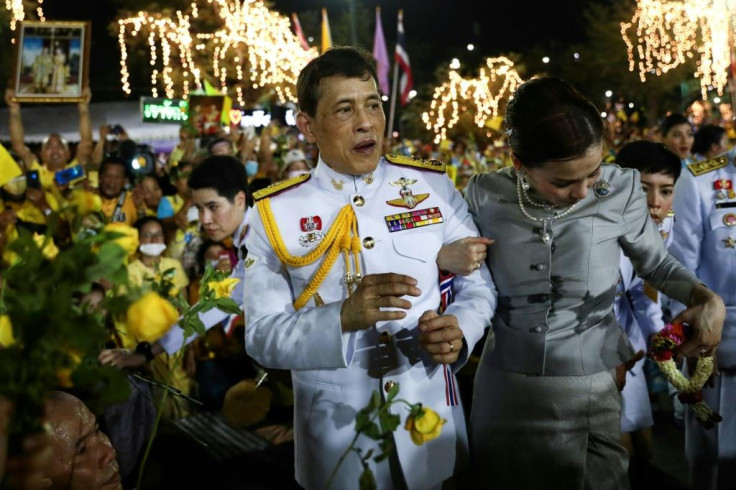103 face jail for royal insult since taboo-breaking speech against Thai King
The monarchy has traditionally been portrayed as above reproach, while any criticism of the ruler is considered taboo as well as illegal.
Criticism of Thailand's monarchy continues to be punishable with jail terms even a year after an unprecedented taboo-breaking speech was made against the extreme power that lies in the hands of the King.
103 people are facing imprisonment for royal insult since the speech that called for a discussion on the role and accountability of King Maha Vajiralongkorn. Human rights lawyer Arnon Nampa has already spent months in jail, charged with the crime of defaming the monarchy, reports Reuters.
The 36-year-old said he has no regrets despite his imprisonment, and vowed that the prosecutions will not crush the anti-government movement which has gained momentum in recent weeks. "I think it has been worthwhile. Now the society can move forward and people can talk about the monarchy," he told the agency in an interview while awaiting trial, and also denied any wrongdoing.
Apart from Nampa, 102 people from Thailand's youth-led anti-government protests are now charged with insulting or threatening the monarch or his immediate family, a crime which is punishable by up to 15 years of imprisonment. Hundreds more face other criminal charges for their criticism of the royals.
The anti-monarchy protesters revamped the movement in central Bangkok on Tuesday, where Arnon repeated the call to reform the monarchy and demanded the country's lawmakers to revoke the lese majeste law and transfer back public property that the government has handed over to King Vajiralongkorn since his succession in 2016.
"One year has passed and not only did we not get an answer whether the king would change but we have also faced retalitions," Arnon said in his speech.
Arnon also criticised the conservative Thai culture where the monarch is traditionally portrayed as above reproach, while any criticism of the ruler is considered taboo as well as illegal. The activist argued that talking openly about the monarchy is necessary in order to push for democratic reform and the removal of Prime Minister Prayuth Chan-ocha. Prayuth, a retired Royal Thai Army general officer, was named as the prime minister in 2019 after the army overthrew an elected government in 2014 and held a general election that elected a military-backed political party headed by him.
However, Prayuth's office insisted that he retained power in free and fair elections in 2019. The government also defended the criminal cases against the protesters. Spokesman Anucha Burapachaisri said on Monday, "Sometimes the protests were not peaceful...when there is violence the police must maintain peace."
Meanwhile, the palace has maintained its silence and said it will not respond to questions on the protests.

© Copyright IBTimes 2025. All rights reserved.





















